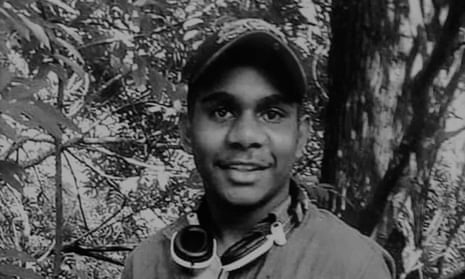Kumanjayi Walker had complex developmental trauma that would have influenced his interactions with police, an inquest into the Northern Territory teenager’s death has heard.
Walker was 19 when he was killed during an attempted arrest attempt at Yuendumu, north-east of Alice Springs, in November 2019.
The Warlpiri man was shot three times by Constable Zachary Rolfe, who was subsequently charged with his murder. Rolfe was found not guilty of murder and two alternative charges after a six-week trial in the NT supreme court in Darwin earlier this year.
Coroner Elisabeth Armitage on Wednesday oversaw the final hearing of the year, with evidence from trauma and addiction counsellor Kerri-Anne Chilvers.
Chilvers said she had known Walker since he was 12 and engaged with him over a number of years, last seeing him shortly before his death.
She described an early encounter with the teen when he participated in a program at a remote outstation.
Upon arrival, the other children jumped out of the car, but Walker stayed in a foetal position and would not move or speak, something Chilvers later recognised as a trauma response to an overwhelming new environment.
Over the years, he displayed symptoms of trauma including hyper-vigilance, outbursts of anger, poor impulse control and an “exaggerated startle response”.
The inquest heard he repeatedly escaped from youth detention, having been hospitalised with multiple dog bites as a result of one arrest.
“That tells me that his need to escape was greater than anything else,” Chilvers said.
“He was not thinking about what happened last time. He was only thinking in that moment when he made that call to escape again.”
Chilvers said she had formed a clinical impression that Walker had suffered from complex developmental trauma.
after newsletter promotion
This was reinforced by a “body map” activity in which Walker illustrated a limited physical awareness of his response to stress.
Chilvers said she believed the death of the “caring young man” could have been avoided if police had employed trauma-informed practices during the attempted arrest.
She felt it would take years for authorities to rebuild trust with young people in Yuendumu.
“Kids will say ‘You’ll get shot’ now. It’s had a significant impact,” she said on Wednesday.
“I don’t know what is needed but if these are already traumatised kids, that’s not going to help develop their relationships with police.”
The inquest is set to resume in late February for two weeks of sittings, with Rolfe expected to give further evidence.
